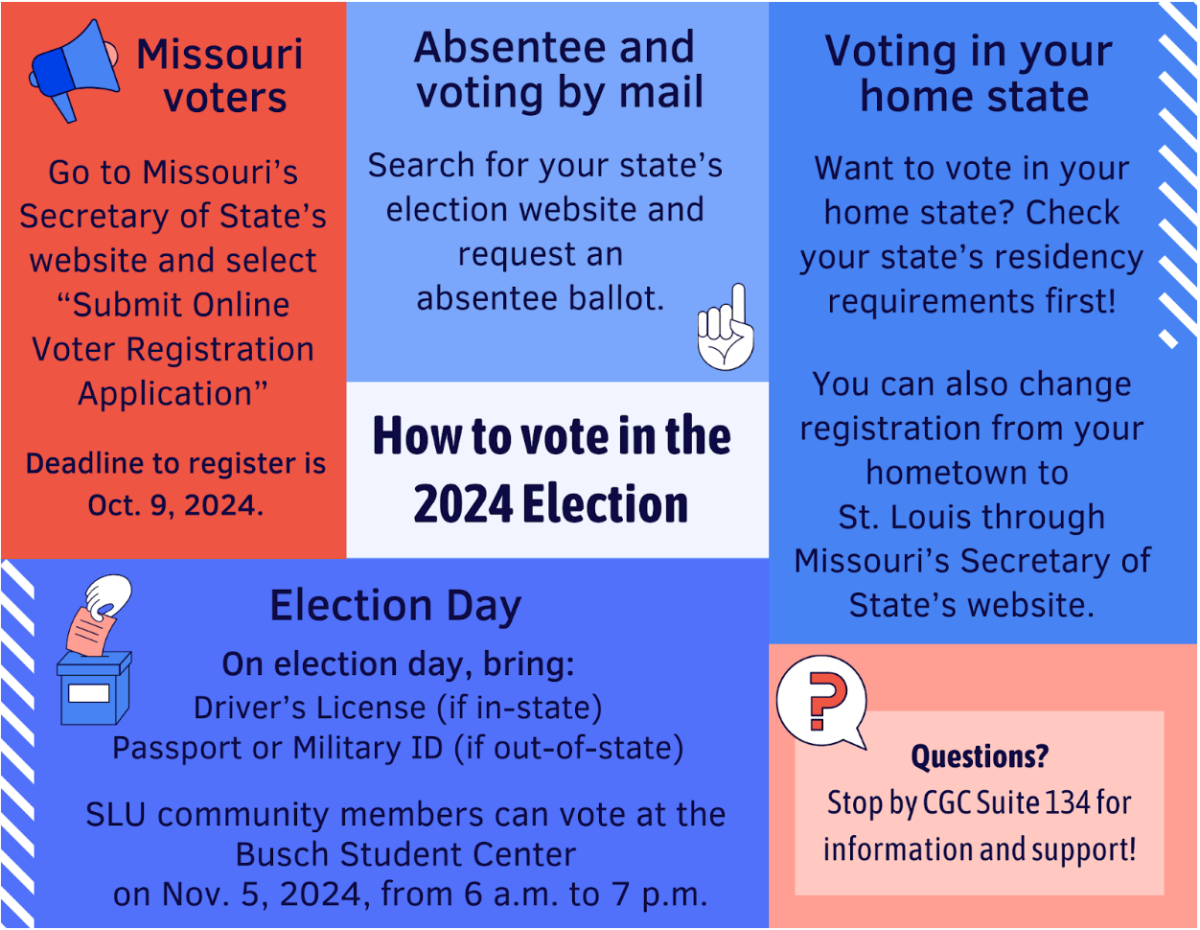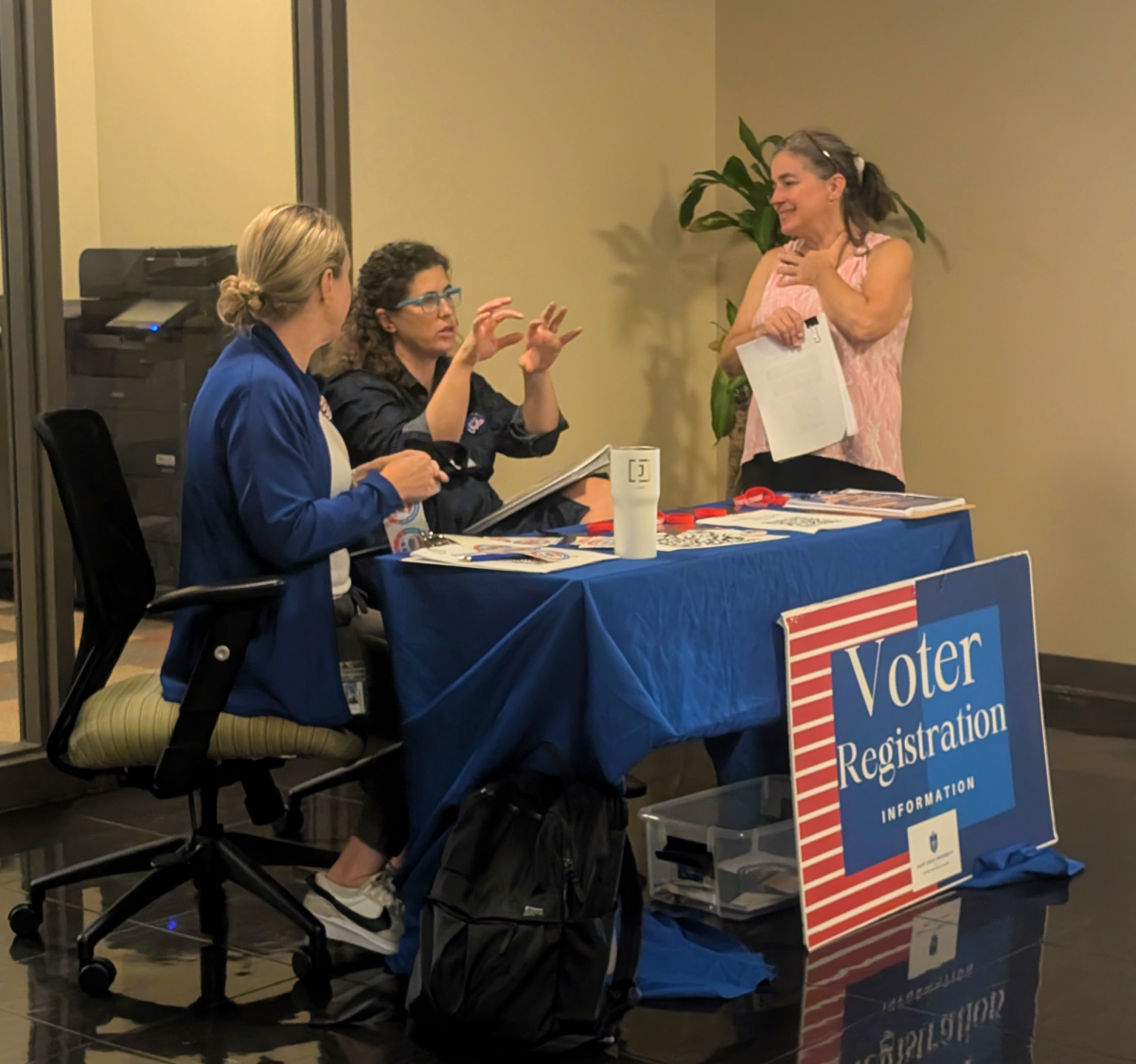With less than three months until the November election, voter engagement teams at SLU have been ramping up their efforts to register more students to vote.
College students are less likely to turn out to the polls, said Steve Rogers, associate professor of political science at SLU. Rogers explained that this is a trend that has prevailed despite direct policies impacting college students, like student loan forgiveness plans.
“This has been the trend, and the larger reason behind it is that college students don’t necessarily see how much politics affect them,” Rogers said.
On SLU’s campus, the student voting rate is higher than average, and the Center for Social Action’s voter engagement team wants to get even more students out to the polls.
With weekly tabling events across campus beginning during student move-in, the team has assisted over 300 students with one-on-one voter registration support. These events consist of answering students’ questions about voting, aiding in the registration process and working with students to solidify their voting plan.
Leah Sweetman, Director of Community Engaged Learning at the CSA, is working to close the gap between students who are registered to vote and those who actually show up to the polls. In 2020, an estimated 7,692 SLU students voted in the presidential election. That’s about 73.8% of all students registered to vote.
This November, Sweetman wants to bump up the campus voting rate to 75%.
“Making voting work fun and lively in these times and supporting young voters is very important for establishing habits of good citizenship,” Sweetman said.
Throughout the last 12 years, the registration and voting rates of SLU students have been increasing, according to data from the National Study of Learning, Voting, and Engagement. In 2012, the campus voting rate was 51.8%, growing to 61% in 2016 and 73.8% in 2020.

Areeb Hasan, a senior at SLU and member of the voter engagement team, has been working with the SLU Department of Biology and various cultural organizations encouraging students to register and to vote.
When speaking to students who feel a disconnect from presidential candidates, he explains that there are several other important boxes on the ballot, including referendums about legalizing abortion and sports gambling in Missouri.
Hasan acknowledges that with access to social media, Gen-Z and other college students are one of the most informed generations in history, but he said those students often lack mechanisms of action and advocacy.
“I encourage people to vote for those who can’t vote; for the child, the immigrant, the felon, the person abroad, or in honor of your ancestors,” Hasan said. “Being students of a Jesuit university, we are called to have a higher moral consciousness and to do what we can to create change in the community.”










